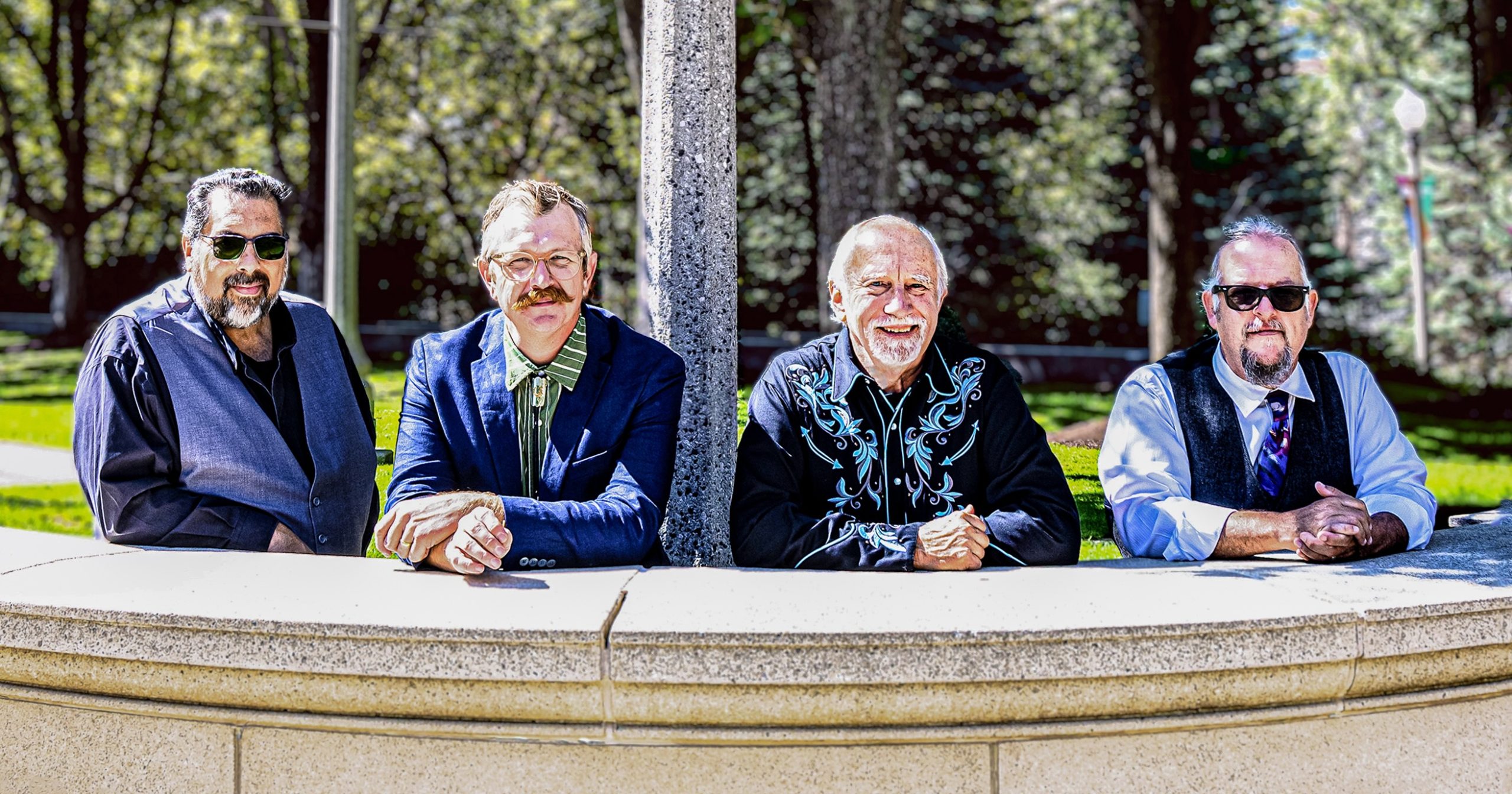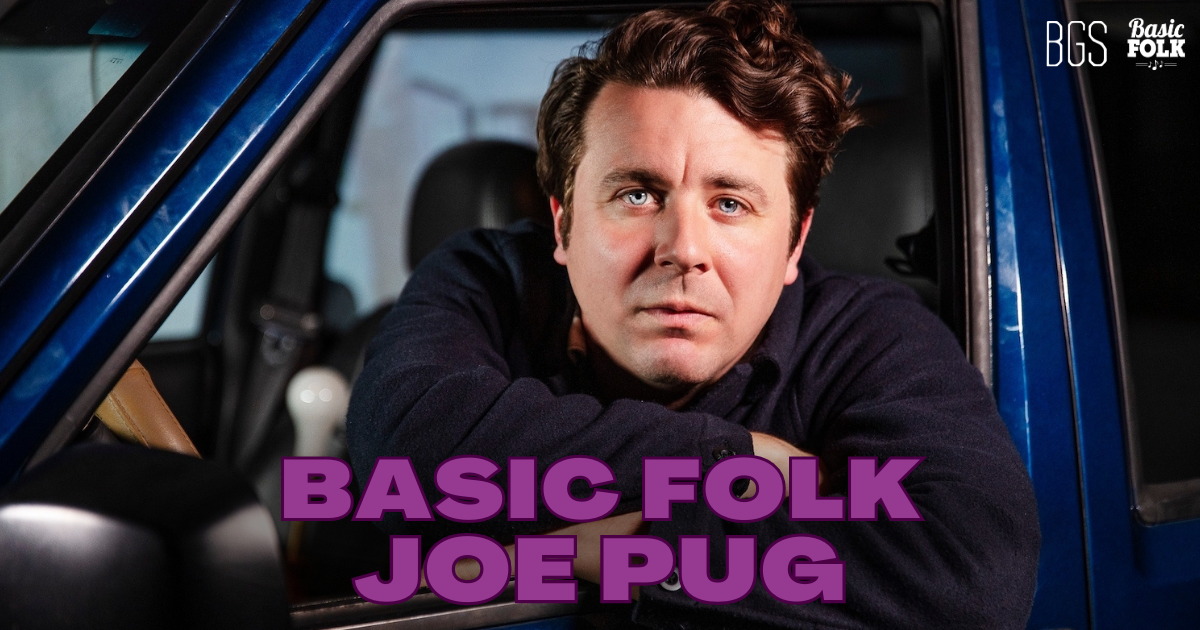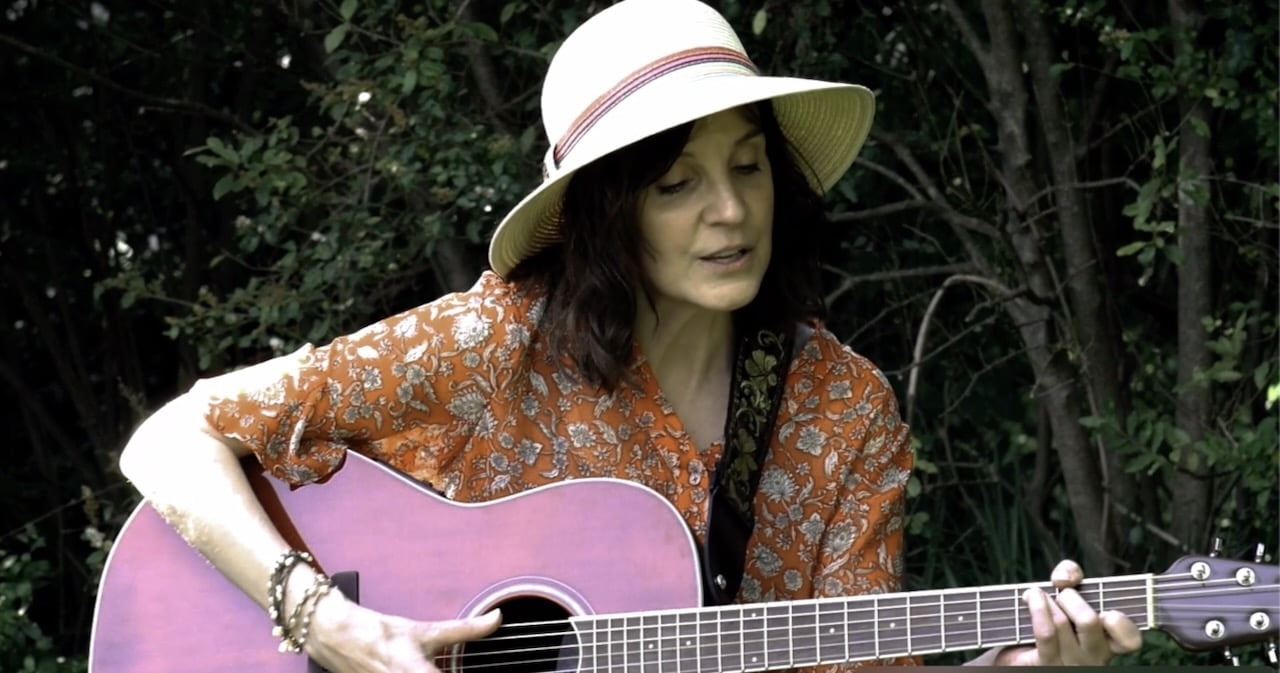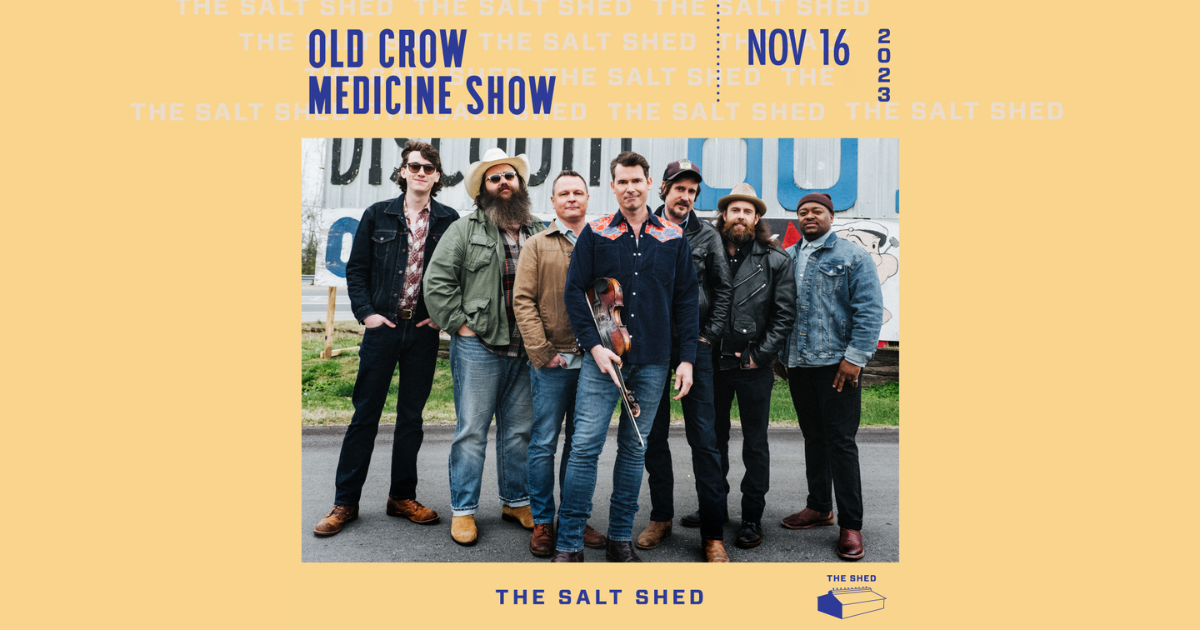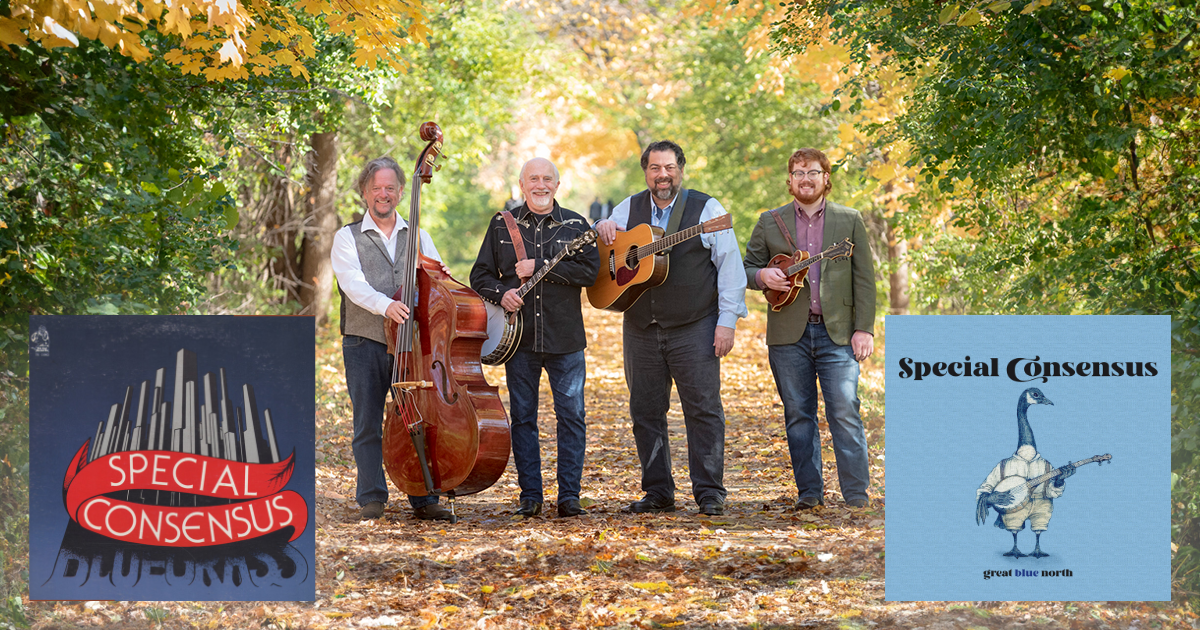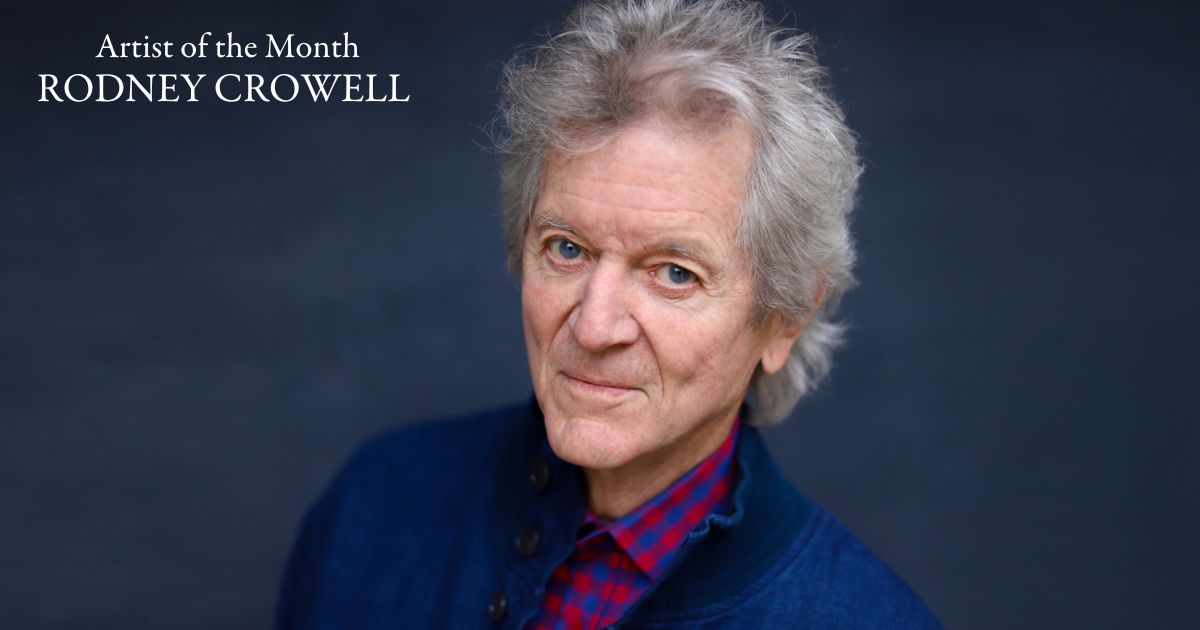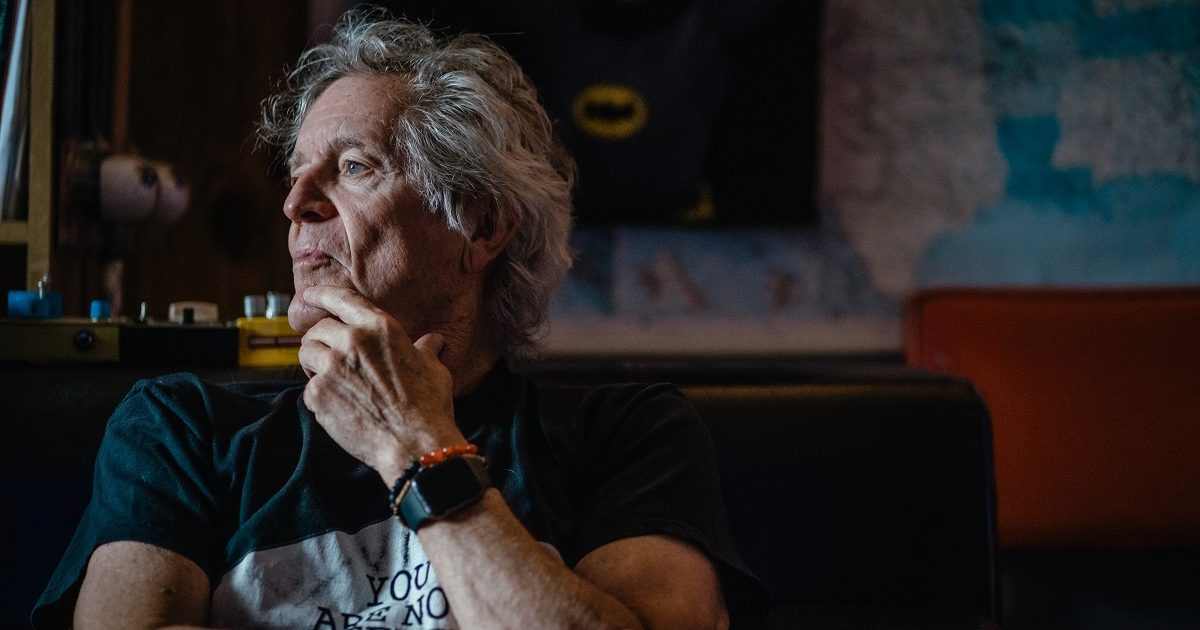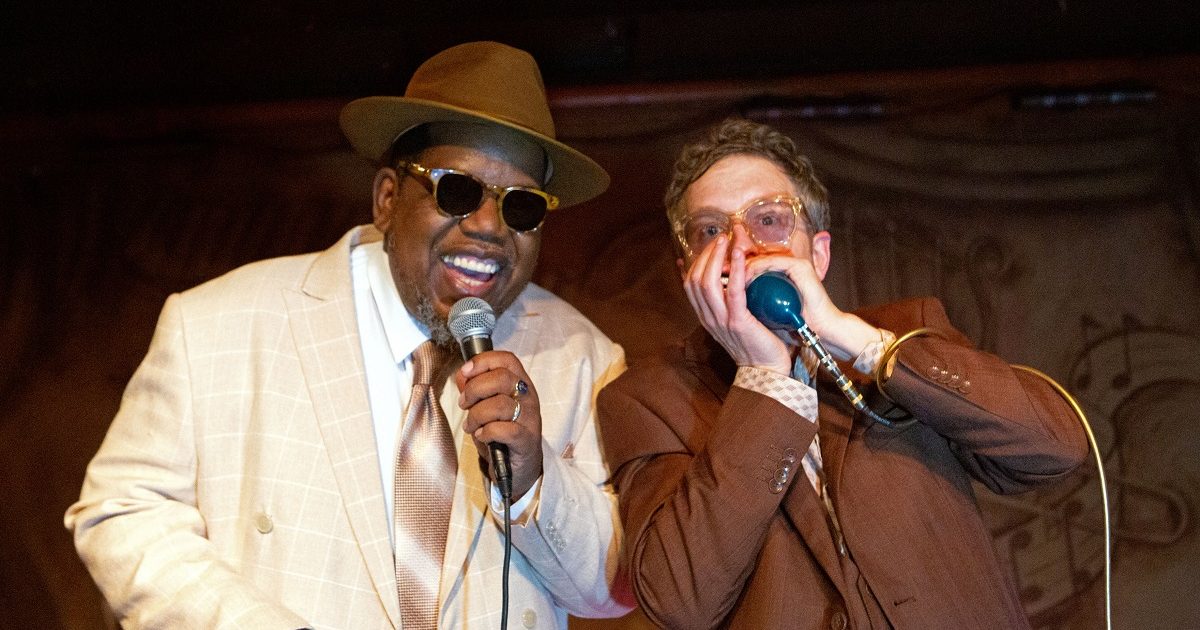It is positively astounding to me that Special Consensus has been running the road for 50 years. When bass player Marc Edelstein and I decided to make the band a full-time entity, we thought it would be for two or three years and then we would return to “normal life.” Instead of getting the music bug out of my system over the years, traveling throughout our country and around the world only intensified my love of playing bluegrass music.
Been All Around This World is Special C’s 20th band record and our eighth on the Compass Records label. Our wonderful producer Alison Brown has helped raise the bar for the band – resulting in the band receiving eight IBMA Awards and two GRAMMY nominations.
Reflecting on the band’s golden anniversary, I looked back over our body of recordings and selected 15 songs that we are especially proud of – songs that received awards, that did very well on bluegrass music airplay charts, or consistently received (and continue to receive) requests at our live shows.
I appreciate this opportunity to present these songs from every era of the Special Consensus. It has been an honor to play banjo alongside such phenomenal musicians on these songs. I hope you will enjoy! – Greg Cahill, banjo player and founder
“Dream of Me” (1983; not on Spotify)
“Dream of Me” appeared on our Blue Northerns recording, released in 1983, and featured Chris Jones on guitar/lead vocal, Paul Kramer on mandolin/vocals, John Rice on electric bass/vocals and fiddle, and yours truly on banjo. Yes, electric bass! We were quite happy with the band sound for this second band recording – and who would not be happy when hearing Chris Jones sing every time we performed.
“Freight Train Boogie” (originally released 1986, re-recorded for 2000’s 25th Anniversary)
Released in 1986, this title song featured Dennis White on guitar, harmonica, and lead vocals, our honorary band member Ollie O’Shea on fiddle, Tim Wilson on mandolin/vocals, Scott Salak on acoustic bass, and yours truly on banjo/vocals. This song was requested for years, and we were very honored that our friend, the great Jethro Burns, wrote the liner notes for the album.
“Fourteen Carat Mind” (1991, re-recorded for 2010’s 35)
From our Hey, Y’all release, this track featured the fabulous singing of Dallas Wayne and always received a strong response. The song also featured Dallas on bass, Marty Marrone on guitar/vocals, Al Murphy on fiddle, Don Stiernberg on mandolin, and yours truly on banjo/vocals. The folks in Finland admired his voice as much as we did and lured him to their country to record and perform after hearing him on tour there with Special C. He and his wife lived there for seven years.
“Ten Mile Tennessee” (1996)
From our Strong Enough To Bend release in 1996, this featured the smooth lead vocals of guitarist Bobby Burns with Diana Phillips on bass, Colby Maddox on mandolin, and yours truly on banjo. This beautifully written song continues to be requested at our shows to this day and we are always happy to sing it.
“Another Day With The Blues” (1998)
“Another Day With The Blues” was brought to the band by Andrea Roberts, our bass player at the time, and she sang lead on the song that appeared on the 1998 Our Little Town recording. Chris Walz played guitar/vocals, Colby Maddox played mandolin, and I played banjo/vocals. We recorded the song in the key of C and Andrea wanted me to use the capo at 5th fret, but I did not want to do that. She felt it would sound much grassier, given the melody and flow of the song, so I relented, put the capo on the 5th fret, and it was the first Special C song to ever chart on the Bluegrass Unlimited Top 30 songs chart.
“Carolina in the Pines” (2010)
This was a massive “hit” song for Special C, from our 2010 Pinecastle Records release, Route 10. Josh Williams sang lead and played mandolin, Jamie Clifton played guitar/vocals, Tim Dishman played bass/vocals, and I played banjo. This song received so much attention that we are still referred to as the “Route 10 Band” – and we not only keep the song in the band stage repertoire, we recorded it again for the new Been All Around This World release.
“Today Has Been A Lonesome Day” (2005)
This song was always a show-stopper when Ron Spears sang it at the top of his lungs, usually at the end of a set. Although there were several songs on this 2005 Everything’s Alright recording that consistently received requests, Ron’s amazing singing on this song made it an event! Justin Carbone is on guitar, Tres Nugent is on bass, and I played banjo.
“Wild Montana Skies” (2014)
Included on the 2014 Compass Records Country Boy, A Bluegrass Tribute To John Denver recording, this track features mandolin player Rick Faris singing with Claire Lynch. Dustin Benson played guitar/vocals, Dan Eubanks played bass, Rock Ickes played Dobro, and I played banjo. This song became a favorite of our fans and received a lot of airplay. It also won the International Bluegrass Music Association’s Recorded Event of the Year award.
“She Took The Tennessee River” (2018)
This track comes from the 2018 Compass Records recording Rivers and Roads, which won the IBMA Award for Album of the Year and was GRAMMY-nominated for Best Bluegrass Album. Becky Buller and Jon Weisberger wrote the song and Becky played fiddle on the track along with Nick Dumas on mandolin/vocals, Rick Faris on guitar/vocals, Dan Eubanks on bass, and I played banjo. We were honored to have Bobby Osborne join us for a verse on this one.
“Squirrel Hunters” (2018)
Also from our Rivers and Roads album, “Squirrel Hunters” was one of John Hartford’s favorite tunes to play and, with the help of his daughter Katie, our producer Alison Brown, and some technology, John introduces the tune and plays the first fiddle solo on the recording. Rick Faris is featured on guitar, Nick Dumas on mandolin, and Dan Eubanks on bass along with Alison Brown on twin banjo and 10 String Symphony (Christian Sedelmyer and Rachel Baiman) on fiddles. This recording won the IBMA Collaborative Recording of the Year Award.
“Alberta Bound” (2023)
From our Great Blue North Compass Records release, this song spent a few months in the number 1 position on the Bluegrass Unlimited Top 30 Bluegrass Songs chart and shared the very first IBMA Video of the Year Award with Authentic Unlimited. We consistently receive requests for this song that features mandolin player Michael Prewitt on lead vocal with Greg Blake on guitar/ vocals, Dan Eubanks on bass/vocals, me on banjo along with our Canadian friends Ray Legere on fiddle and Pharis and Jason Romero, John Reischman, Patrick Sauber, and Trisha Gagnon on vocals. The song also won the IBMA Collaborative Event of the Year Award.
“Snowbird” (2023)
Also from the Great Blue North, this recording is one of our most requested songs and also appeared on the Bluegrass Unlimited Top 30 Bluegrass Songs chart. The recording features IBMA 2023 Male Vocalist of the Year Greg Blake on lead vocals and guitar, Michael Prewitt on mandolin/vocals, Dan Eubanks on bass/vocals, Claire Lynch on harmony vocals, and me on banjo. Beautiful song!
“What Am I Doin’ Hangin’ ‘Round” (2025)
Alison thought this Michael Martin Murphey song made popular by The Monkees would be a great showcase for Chris Jones’ smooth vocals. All of us loved the idea and we had a blast in the studio recording this one with Greg Blake trading lead vocals with Chris, and Rick Faris and Dallas Wayne joining Dan and Brian on harmony vocals.
“I’m Always On A Mountain When I Fall” (2025)
We really wanted to showcase Dallas Wayne’s fabulous vocals on the new project and what better way to do that than by featuring him on a song made popular by Merle Haggard. Dallas sang in country music clubs in Chicago for years before joining Special C and he left the band to lead a country band in Finland. When he stepped up to the mic and launched into the first verse, we all were literally spellbound. It was truly amazing to watch and hear him so effortlessly deliver such an incredible performance.
“Wish We Had Our Time Again” (2025)
This was the grand finale of sorts for our 50th anniversary album. Even though it’s about a past relationship, the sentiment in this John Hartford-penned song somehow seemed perfect for us. Standing next to former bandmates Chris, Dallas, Robbie, Rick, Josh and Ashby in the studio – people who have remained best friends over so many years – along with my more recent best friends Dan, Greg, and Brian, literally brought tears to my eyes. Made me realize how fortunate I have been to have these phenomenal musicians and producer Alison as best friends forever in my 50 years of making music “all around this world.”
Photo Credit: Karen Murphy
